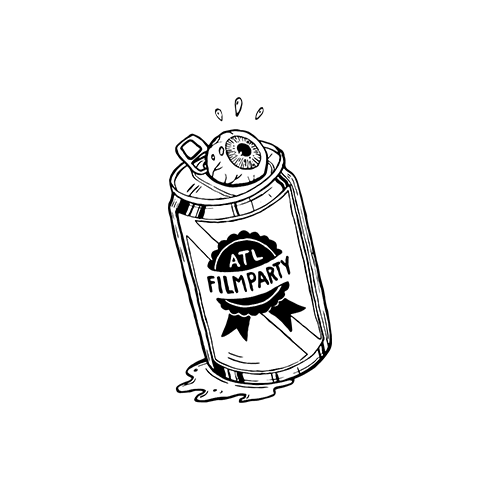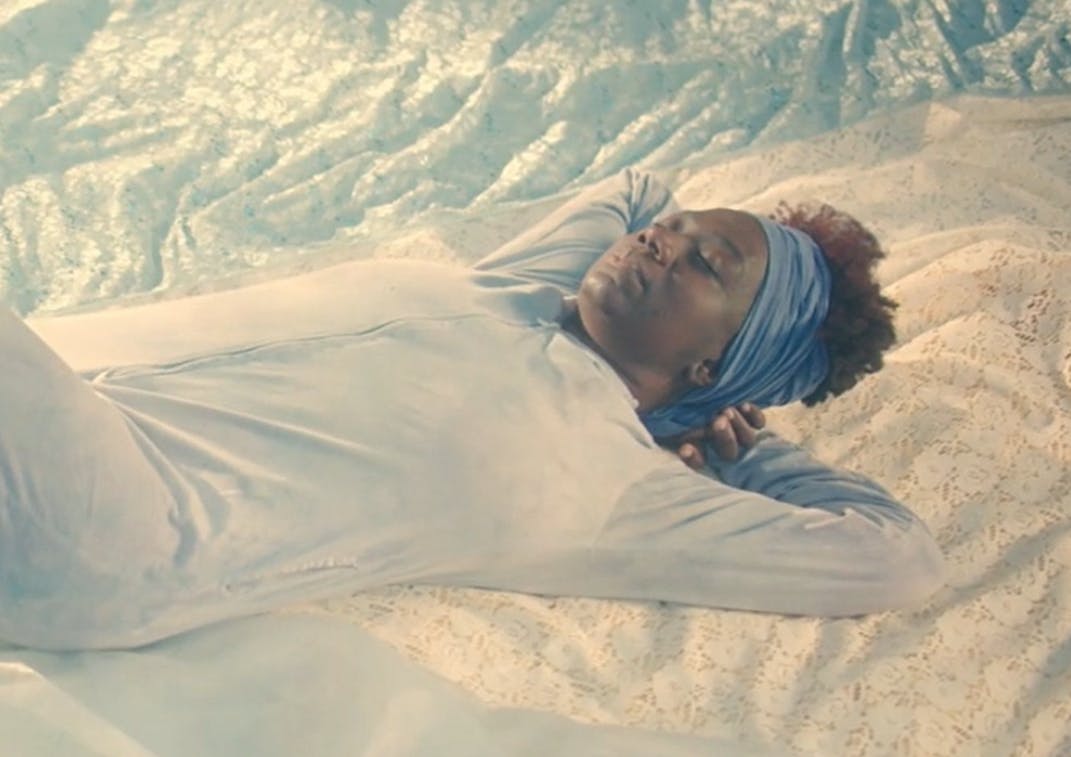“Rest Intuit,” a short documentary directed by Olamma Oparah and DPed by Samuel Laubscher, debuted during the Georgia State University Student Film Festival at The Historic Plaza Theatre off Ponce de Leon Avenue, in the heart of Atlanta. A swath of student filmmakers and their supporters gathered to see a robust showcase of Georgia-lensed short films and the pure adulation during the event lifted spirits throughout the audience.
If Olamma Oparah’s name is familiar, it’s likely recognized by those who have been attending ATLFilmParty since its inception. Oparah was the inaugural winner of AFP, with her experimental 2-minute short film “The Importance of a House,” DPed by Colbie Inez (f.k.a. Colbie Fray). The two women won the most votes during Cycle 1, Season 1 of AFP and went on to exhibit the film at Mint Gallery, which was covered by Felicia Feaster in the Atlanta Journal Constitution, who described Oparah and Inez’s works as "the spiritual heart of the exhibition."
AFPZine sat down with Oparah and Laubscher to discuss the intricacies of shooting “Rest Intuit.” The first question covered Oparah’s recent departure from her collaborative efforts with Inez, which is marked by the most recent short, “Rest Intuit.”
“I had only worked with one DP, [Colbie], a Black woman. My work was centered around Black women, almost in a braggadocio way. Like, ‘this is a black woman film,’” Oparah told AFPZine. “After talking with Sam, I knew it was going to be ok. Sam has a deep understanding of softness and is open to learning.”
“Rest Intuit'' is a distinct and clear tribute to Tricia Hersey’s text, Rest Is Resistance: A Manifesto. The manifesto delves into the act of rest as an avenue of reclaiming power, as it asserts the most basic humanity and serves as a statement of power: “We are enough. The systems cannot have us.”*
Oparah primarily favors her home as a shooting location for her directorial projects; it’s the domain where she raises her son, works, cooks, does laundry, and more, and it is also the place where she rests. While Oparah accomplishes many tasks and activities in her home, she articulated that rest itself functions as her creative space; her home is simply a vessel for that rest.
“Rest is important to me, because it’s where I dream,” Oparah stated. “It’s where I am afforded the time to not worry about anything, which is difficult, which is why it was so important to make the film, because resting is hard. It’s harder than getting up and doing something. It’s harder than going to the grocery store or busying yourself with friends. Rest is difficult in the world that we live in right now, because you have to compete. You have to do all of this stuff, and my dream space is a space where I don’t have to compete with anyone. My imagination isn’t put to task; it’s just able to exist.”
“I have to dream in order to create,” added Oparah. “A lot of my ideas for my filmmaking come from that rest space…I wanted to make sure that the subjects of ‘Rest Intuit’ had space to rest even while we were shooting.”
Since 2010, Laubscher has been working freelance in narrative and commercial cinematography and portrait and documentary photography. They are experienced in modern digital cinema, 35mm, and 16mm motion cameras, as well as in working with XR LED walls. Laubscher attended the first AFP that Oparah was named winner of, and although that was in 2021, the two eventually crossed paths again and formed a bond which resulted in the collaboration seen in “Rest Intuit.”
When asked about how it was working alongside Oparah, Laubscher expressed, “I had such a great time on this project, because rest really was implemented into the shooting schedule. It was very organic; there was no one yelling. It wasn’t rushed. It was just: ‘how do we make this beautiful?’”
Prominent frames that stick out in “Rest Intuit” involve a group of Black women lying down outside, resting on top of a white, lacey sheet.
“It was this beautiful scene of everybody resting,” Laubscher described. “And Ola was also lying down, and I was kind of walking around a little bit, just getting different angles, and Ola’s like, ‘Hey, Sam, come here for a second. Lie down right here,’ and we just laid down next to each other and Ola was like, ‘Do you see that right there?’ and then we got the rest of the shots. I think all the shots that [Ola] ended up using were the ones from when we were both just lying down.”
“It was such an inviting environment,” added Laubscher, “There were safeguards put in place to mitigate stress; just with the food Ola made and the people that Ola chose to be there, it was a very quiet and calm environment. It took me a minute to get used to, because I’m so used to showing up on set like, ‘Go, go, go!’”
Oparah’s distinct choices as a director, from her home being the set of the majority of her projects to the absence of craft services and the substantial replacement being homemade meals, subjects and crew members that participate on her sets are constantly reminded that they are human; and, humans don’t just need sleep, they need rest.
“Black women feel guilty when they rest, and I’m not just speaking for myself…I’m solid in saying that,” Oparah told AFPZine. “Sleep is the minimum. Sleep is what you need in order to function, to shirk insanity. And you just get enough of it…we’re robbed. We don’t get a chance to think about the future or mill around in the present or stare out in space or think about my grandma.”
What can rest do for both Black women and gender queer folx? For Laubscher, they believe rest is a calibration tool for those who are forced into constant activity to defend their bodies and their place in the world.
“[Rest] gives you time to recenter with yourself,” Laubscher stated. “And to find that internal love for yourself again…taking time for yourself to recenter and know who you are is very important.”
“Rest Intuit” will be running the festival circuit throughout 2024 - 2025. AFPZine readers can follow the “Rest Intuit” on Instagram for updates on where it will be showcasing next.
*Cited from the Amazon.com description of Rest Is Resistance: A Manifesto


